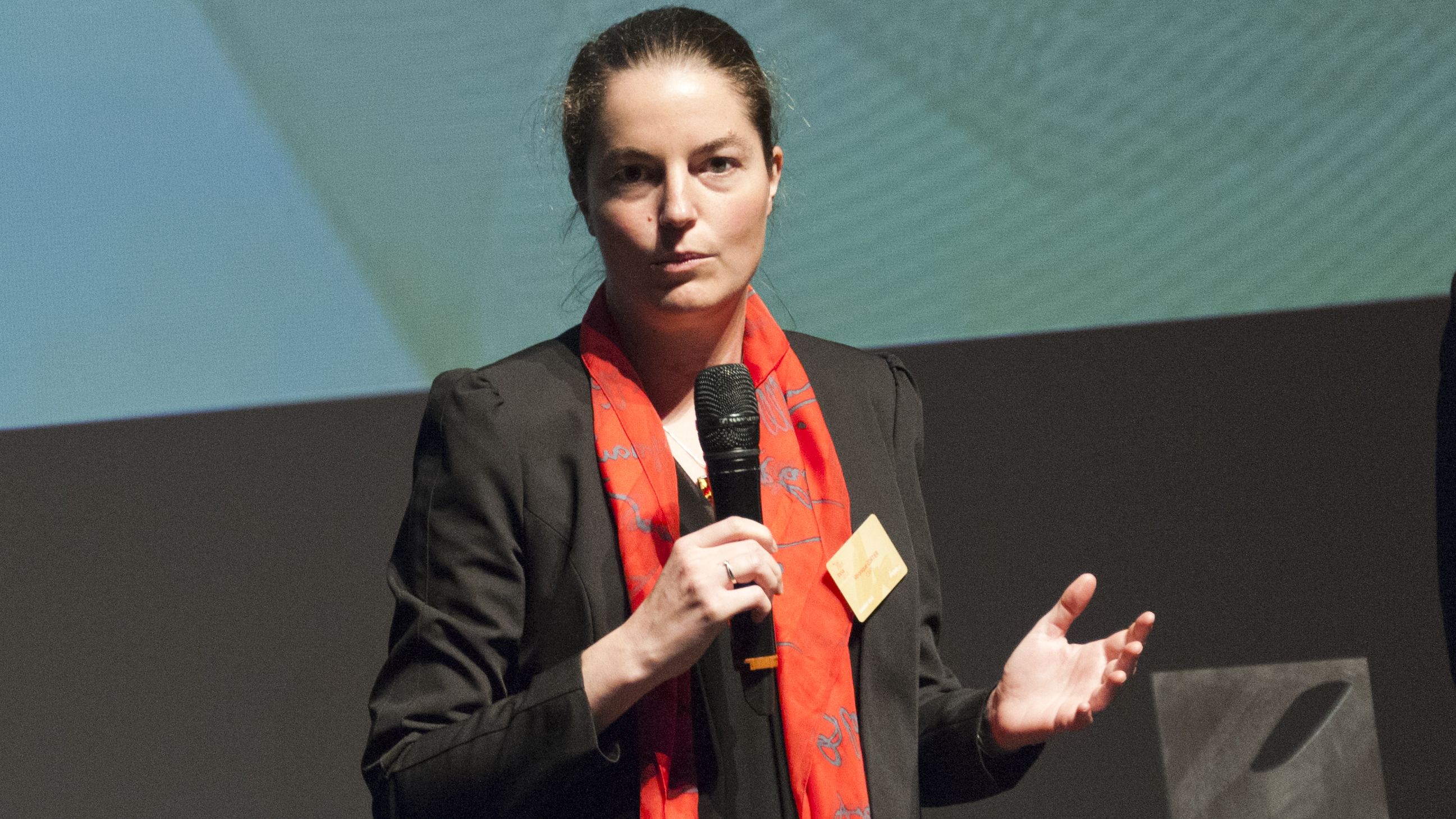Véronique Cortier : Inria–French Académie des sciences Young Researcher Award
Date:
Publish on 29/01/2020

“I am against electronic voting in political elections! ” is the opening salvo of Véronique Cortier, CNRS Research Director at LORIA laboratory for computer research in Nancy and member of CASSIS Inria team. Paradoxically, it is her work on designing secure electronic voting protocols that has done the most to contribute to her growing reputation in Europe. “Electronic voting is increasingly being used for ballots of smaller institutions, such as associations, trades unions and universities ,” she explains. “But the principle is gaining ground and, sooner or later, electronic voting will be used in major political elections. Online democracy is following the general course of history. Secure voting protocols are thus a major issue for society. It is my responsibility to use my knowledge to foster the emergence of reliable and truly secure protocols that ensure both the integrity and confidentiality of voting. ”
The daughter of two mathematics teachers, Cortier enjoyed the playful side of maths from an early age. “Even when I was in secondary school, I loved solving puzzles and entering mathematics competitions in specialist magazines ,” she recalls. This interest ultimately led to her studying at the prestigious ENS Cachan, where her love for mathematics grew to include computing. “We had a compulsory computing course which opened my eyes to the value of algorithms and how they can be fun. ” The young student discovered the world of research while preparing her thesis and was quickly drawn in. “I studied critical software, software for which the absence of bugs and security loopholes is particularly important ,” explains Cortier. “This covers banking and e-commerce as well as an increasing share of everything we do in life. I am interested in the security and cryptographic protocols that are used for online payments, authentication and secure exchange in its widest sense. ”
Cortier’s work on the automatic verification of computer programs and secure protocols quickly earned her international recognition. In addition to two prizes (from the Société Informatique de France and Le Monde newspaper) for her thesis, she has received an ERC Starting Grant and was invited to give two lectures at the Collège de France, the most recent in March 2015.
At the same time, Cortier plays a leading role in conducting research in her field. She is the founder and head of a working group on verification for the 200-member CNRS research group on computing and mathematics. She is also the co-founder of the international workshop for Formal and Computational Cryptography. Her work on the CASSIS team at LORIA resulted in the development of tools for testing secure protocols, as well as Belenios, an open source electronic voting system, around which several industrial partnerships have been formed. A voting platform will be placed online during the autumn in the form of a free-access resource that will enable anyone to hold an election online.
Appointed research director at the age of just 32 in 2010, Cortier is only the second woman to receive the INRIA – French Académie des Sciences Young Researcher Award. “It is real recognition of my work ,” she relates. “It is also a potential boost. A prize of this kind often serves as a springboard in a career. ”
When asked about her advice to young graduates tempted by a career in research, she instead addresses the decision-makers in education and politics: “Pay attention to the young generations of researchers and students who have not yet chosen a path between research and industry. We need to offer them sufficiently attractive prospects so that our talent doesn’t go abroad. The drastic reduction in academic posts and a constantly changing recruitment policy amount to so many negative signals to talented young people who are essential for the future success of our research. ” The strong message demonstrates her social commitment, which is the very opposite of clichés about researchers being shut away in their ivory towers!